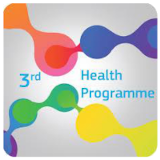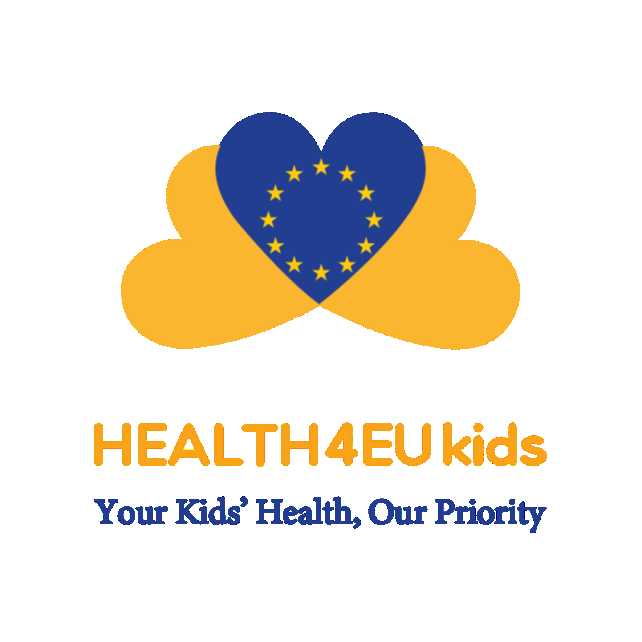EU4Health programme 2021-2027 – a vision for a healthier European Union
The EU4Health programme was adopted as a response to the COVID-19 pandemic (Regulation (EU) 2021/522) and to reinforce crisis preparedness in the EU. The pandemic highlighted the fragility of national health systems. The EU4Health programme will bring a contribution to the long-term health challenges by building stronger, more resilient and more accessible health systems.
Health is an investment and, with a €5.3 billion budget during the 2021-27 period, the EU4Health programme is an unparalleled EU financial support in the health area. EU4Health is a clear message that public health is a priority for the EU and it is one of the main instruments to pave the way to a European Health Union.
EU4Health brings an EU added value and complements the policies of the Member States to pursue four general objective representing the ambitions of the programme and ten specific objectives representing the areas of intervention:
- Improve and foster health
• Health promotion and disease prevention, in particular cancer
• International health initiatives and cooperation
Protect people
• Prevention, preparedness and response to cross-border health threats
• Complementing national stockpiling of essential crisis-relevant products
• Establishing a reserve of medical, healthcare and support staff
Access to medicinal products, medical devices and crisis-relevant products
• Ensuring that these products are accessible, available and affordable
Strengthen health systems
• Reinforcing health data, digital tools and services, digital transformation of healthcare
• Enhancing access to healthcare
• Developing and implementing EU health legislation and evidence-based decision making
• Integrated work among national health systems
The text is based on: https://health.ec.europa.eu/funding/eu4health-programme-2021-2027-vision-healthier-european-union_en
The earlier edition of the program is the 3rd EU health Programme (2014-2020)
Projects under the 3rd EU Health Program 2014-2020 implemented at SUM
Mental health: focus on Retention of healthcare workers Mental health: focus on Retention of healthcare workers (akronim: METEOR) The project is funded by the European Union under 3rd EU health Programme (3HP)
| |
| Project implementation period: | April 1st, 2021 - March 31st, 2024 |
| Content-related project manager at SUM: | Szymon Szemik, PhD (Department of Epidemiology, Faculty of Medical Sciences in Katowice) |
About the project: | The METEOR project is being implemented simultaneously in four European Union countries - Belgium, the Netherlands, Poland and Italy. One of its goals is to identify tools that can be used to improve the working conditions and reduce the phenomenon of rotation of healthcare workers, which will probably intensify due to long-term work in the conditions of the SARS-Cov-2 pandemic and related burdens, adversely affecting the mental health of medical staff. The results of the project may also be a starting point to implement the policy for increasing job retention in healthcare entities. |
| Project partners: |
|
 | |
| Related website | |
Joint Action on implementation of validated best practices (in Nutrition) (akronim: Best Re-Map) The project is funded by the European Union under 3rd EU health Programme (3HP)
| |
| Project implementation period: | October 1st, 2020 - October 1st, 2023. |
| Content-related project manager at SUM | Oskar Kowalski, PhD, SUM prof., (Department of Human Nutrition, Faculty of Health Sciences in Bytom) |
About the project: | The main focus of the Best-ReMaP Joint Action will be on adapting, replicating and implementing effective health interventions, based on practices that have been proven to work in the areas of food reformulation, framing of food marketing and public procurement of healthy food in public settings, thus contributing to increased offer of healthier options of processed foods (by reducing salt, sugar and fat from the processed foods) available in EU (super)markets. The JA will implement a European Standardised Monitoring system for the reformulation of processed foods. The JA aims to deliver a harmonised EU approach to reducing unhealthy (digital) food marketing to children and adolescents and to use already developed tools for harmonised monitoring of (digital) marketing. A prototype catalogue of food will be tested in the public procurement procedure to contribute to the higher quality of menus by assuring transparent quality of the procured foods within public institutions. Building on this work, the JA will support implementation, transfer and integration of the results, outcomes and recommendations of the Best-ReMaP JA into national and EU-level policies. Throughout the JA processes, the participatory engagement of EU and national stakeholders in the field will be prioritised. |
| Project partners: |
|
 | |
| Related website: | |
Implementation of best practices and research results on prevention of non-communicable diseases and risk factors (akronim: Health4EUkids)
| |
| Project implementation period: | December 1st, 2022 – November 31st, 2023 |
| Content-related project manager at SUM: | Katarzyna Brukało, PhD (Department of Health Policy, Faculty of Health Sciences in Bytom) |
About the project: | The Health4EUkids project will be implemented in cooperation with the Polish coordinator, which is the National Health Fund. It aims to implement and disseminate the best practices in health promotion and non-communicable disease prevention (identified based on research results and previous Joint Actions - JA). The overall objective of JA is to support investment in public health at the community level of each Member State in the areas of health promotion, disease prevention, and non-communicable disease management. The implementation process will involve the transfer of knowledge between best practice owners (Smart Family and Grunau Moves) and partner organizations from Member States through the implementation of activities, cooperation, and exchange of experience, organization of meetings and related technical issues. The project will include the promotion of a healthy lifestyle, with particular emphasis on families with children (mainly in socially excluded families), to prevent childhood obesity, increase physical activity and a healthy diet in children, families and communities. It will also be important to identify the conditions and factors as well as the specificities of individual Member States in order to adapt the Grunau Moves or Smart Family activities to bring the best results. Finally, to develop sustainable best practices and allow them to be adapted in other Member States, thanks to the acquired knowledge and experience. Expected research results focus on identifying specific NCD prevention challenges and policy responses in the form of best practices and innovative solutions for joint action between Member States and the Commission to address major public health challenges. |
www.health4EUkids.eu
| |
| Related website | |






